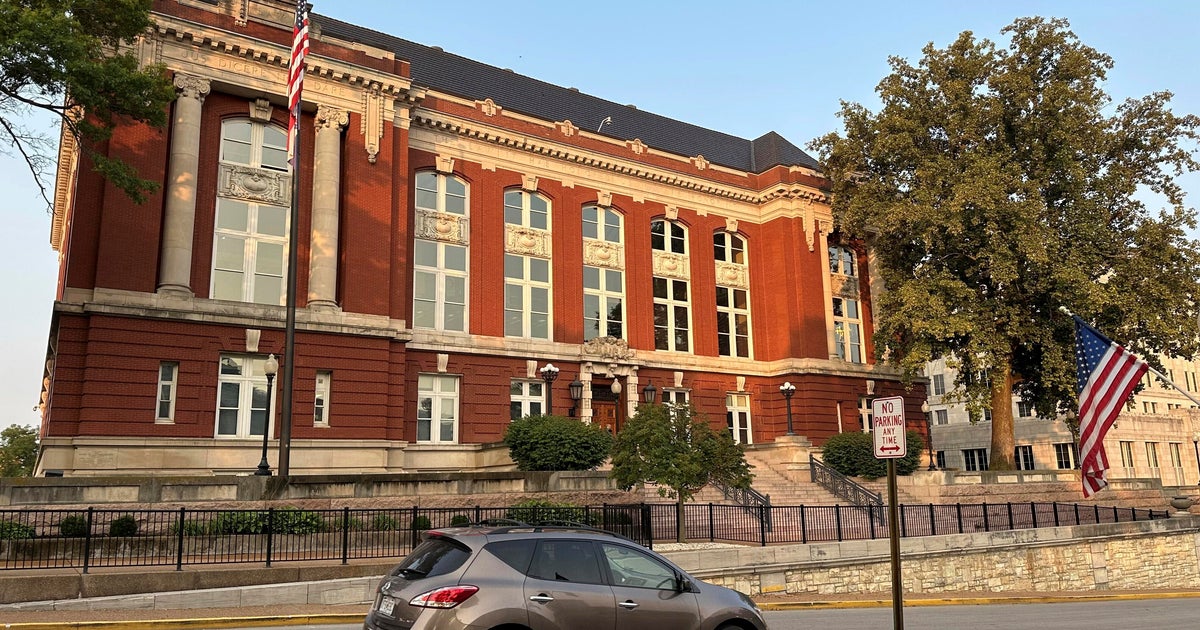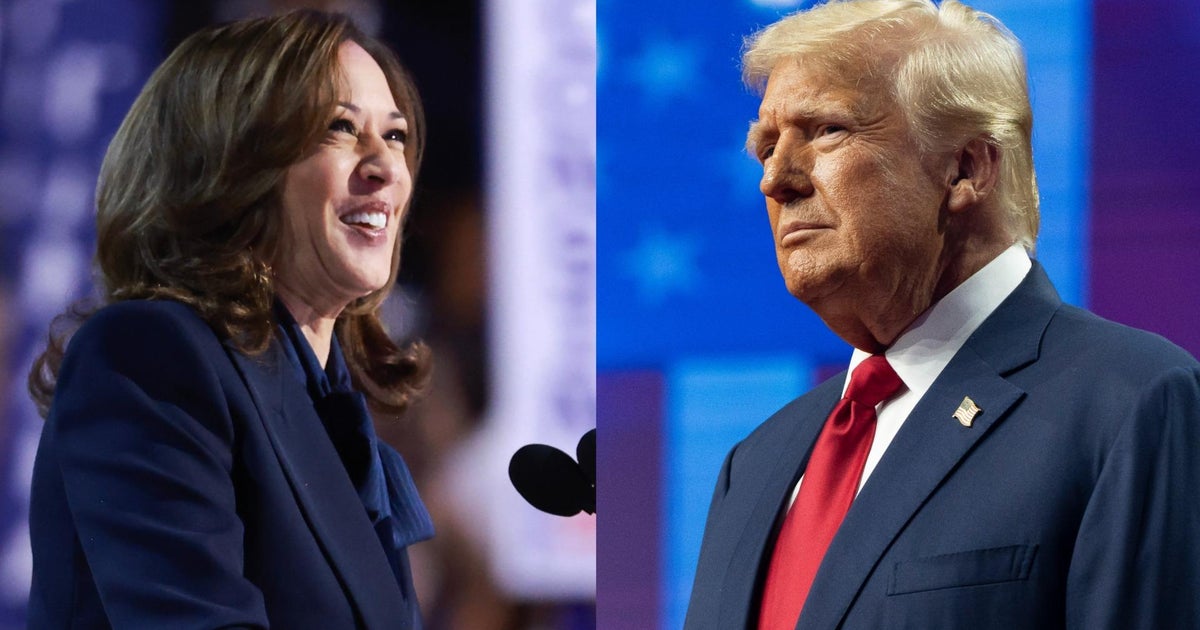Washington — WhenMark Robinson, the lieutenant governor of North Carolina, took the podium earlier this month after winning the Republican nomination for governor, he pledged not to allow his campaign to be dragged “into the mud.” But in the two weeks since the primary, inflammatory remarks he’s made on a range of topics have been rapidly resurfacing, flagged by reporters and opponents.
Robinson’s inflammatory comments have spanned a number of topics, but he’s been especially vocal on LGBTQ+ issues. At a church service last year, Robinsonsaid he feels “sick” when he sees a church flying a rainbow pride flag, which he called “a direct spit in the face of God almighty.” He’ssaid that there’s no reason that children should be taught about “transgenderism, homosexuality — any of that filth.” He alsosaid that “if there’s a movement in this country that is demonic and that is full of the spirit of antichrist, it is the transgender movement.” And he’s claimed that “we have pushed homosexuality over the top,”predicting in a Facebook post, “Mark my words PEDOPHILLA is next, which will be closely followed by the END of civilization as we know it.”
He has also made multiple derogatory comments about Islam, among them,expressing disappointment that religious freedom applies to Muslims andclaiming that “Radical” Muslims “like cuttin’ folks into pieces.”
Robinson, a 55-year-old who formerly worked in furniture manufacturing, has served as North Carolina’s lieutenant governor since 2021. A pro-gun rights speech he made five years ago at a city council meeting went viral online and helped kickstart his political career. Before he was elected, he’d made many inflammatory comments in posts on social media. And since then, he’s used similar rhetoric during appearances at church services or at political events.
Onequote that attracted attention in recent days has appeared to be taken out of context, though. During a 2020 event, Robinson said he wants “to go back to the America where women couldn’t vote,” but that appeared to be a response to a question about whether he would prefer to go back to that time or a time when “Black people were swinging from cheap trees.” He answered that he would prefer the former, clarifying that at the time, Republicans “fought for real social change.”
But Robinson has made plenty of other controversial remarks elsewhere.
The lieutenant governor hassuggested that feminism was created by the devil andequated it to racism. He’s alsosaid “it’s not your body anymore,” fiercely opposing women seeking abortion. He hasacknowledged paying for an abortion for his wife before they were married more than 30 years ago, noting it was the “wrong” decision.
He’scalled climate change research “junk science.” And he’s openly backed conspiracy theories,saying in a Facebook post in 2017 that he’s “seriously skeptical” of John F. Kennedy’s assassination and the 9/11 terrorist attacks, suggesting that he distrusted accounts of the events because they were “on television.” As lieutenant governor, however, Robinson last September praised “the heroes who ran towards danger, the lives tragically cut short, and the stories of unity that emerged from the rubble.”
He’s alsoquoted Hitler, without context. More recently, in the aftermath of Hamas’ Oct. 7 attack on Israel, Robinson has been criticized for inflammatorycomments he made in the past that are widely seen as minimizing the Holocaust. But hesaid that although the comments were poorly worded, “there was never any anti-semitism intended from those words, and there’s never been any antisemitism within me.”
How the rhetoric impacts his campaign remains to be seen. The lieutenant governor’s opponentsshared some of his comments in advertisements ahead of the nominating contest. But that didn’t stop him from earning around two-thirds of the vote in the primary, which came after a key endorsement from former President Donald Trump.
Robinson, who would become the first Black governor of North Carolina if elected, earned the backing of Trump days ahead of the primary contest. Trump celebrated Robinson, calling him “Martin Luther King on steroids.” Robinson has also made disparagingremarks about the Civil Rights movement, claiming that “so many freedoms were lost.”
The race for the governor’s mansion is expected to be widely watched — and expensive — with Robinson set to face off in a close race against North Carolina Attorney General Josh Stein, a Democrat, in November.
Like Robinson’s primary opponents, Stein is expected to highlight the lieutenant governor’s controversial comments ahead of November’s election. Stein said in a social media post that although many people may have just learned about Robinson in recent days, as his comments have become a punchline in some late-night comedy shows, “for North Carolinians, his rhetoric of hatred and vitriol is no joke — and we can’t let him win.”
In a statement to CBS News, Robinson’s campaign said “there is no low to which the Democrats will not stoop to smear Mark Robinson.”
“The only extremist in this race is Josh Stein,” said Mike Lonergan, the campaign’s communications director, saying that Stein supports President Biden’s “open-borders policies” and is backed by “far-left radicals.” “North Carolina voters have had enough of the lies from career politicians like Joe Biden and Josh Stein.”
Stein and Robinson are competing for the post currently held by Gov. Roy Cooper, a term-limited Democrat. While Democrats have frequently won gubernatorial races in North Carolina, voters have largely elected Republicans to other offices in recent years and have voted for Republicans in the presidential elections since 2012.
A win by Robinson could lock in a GOP trifecta in North Carolina, with both chambers of the legislature controlled by Republicans. But some Republicans, eager to get the governor’s mansion back, have warned that Robinson could be a liability.
“Robinson is not the Republican formula,” said Mac McCorkle, a professor at Duke University who worked as an issues consultant to political candidates in North Carolina. “He rocks the boat on a daily basis.”
North Carolina is expected to be a major battleground state this year, after it had among the closest margins of any state Trump won in 2020. Trump’s victory in North Carolina appeared to set up Republican victories down the ticket, except in places where Democrats were already well known. But McCorkle said the question this year will be whether the ticket below Trump is “so explosive” that it might even hurt Trump.
“If people see Robinson as just another Trump candidate, that’s one thing,” McCorkle said, noting that Trump won the state twice. “But the interesting thing is, if you just look at their positions, Robinson goes way further on lots of issues than Trump.”
The months ahead will likely be a test of restraint for Robinson, who political analysts expect to tone down the rhetoric as the general election gets underway, as he looks to appeal to North Carolinians outside of his base.
“Whether he can be disciplined enough to do that is a question. But it may be [that] it won’t matter,” McCorkle said. “The overwhelming amount of nonstop comments that he’s made and the extreme nature of them — it’s going to be hard for him to run away from them.”



